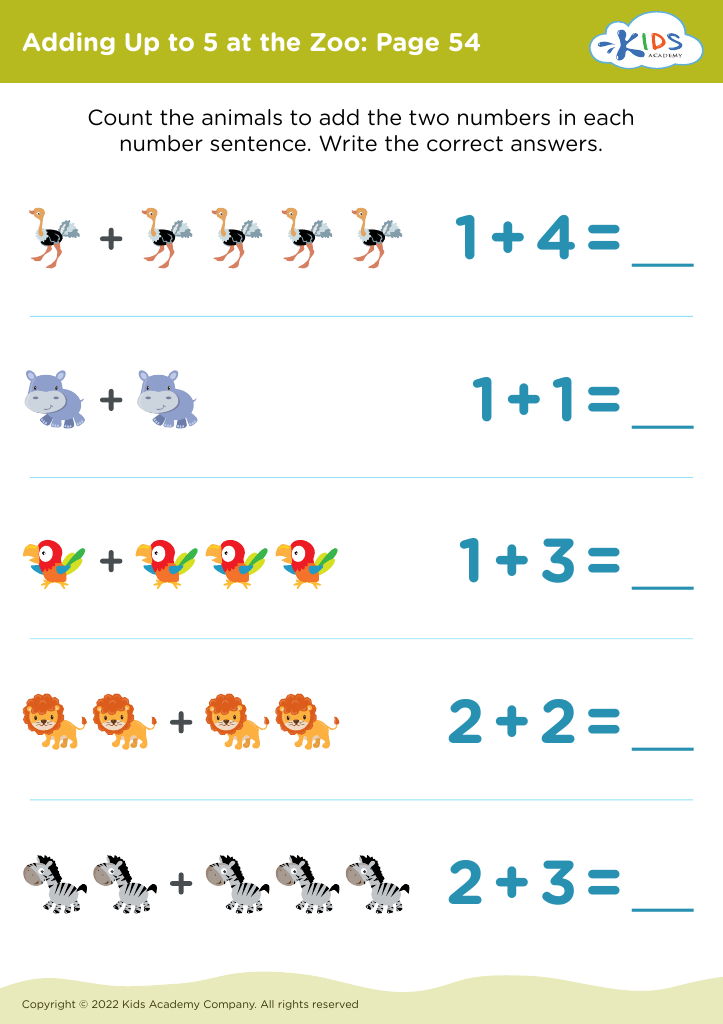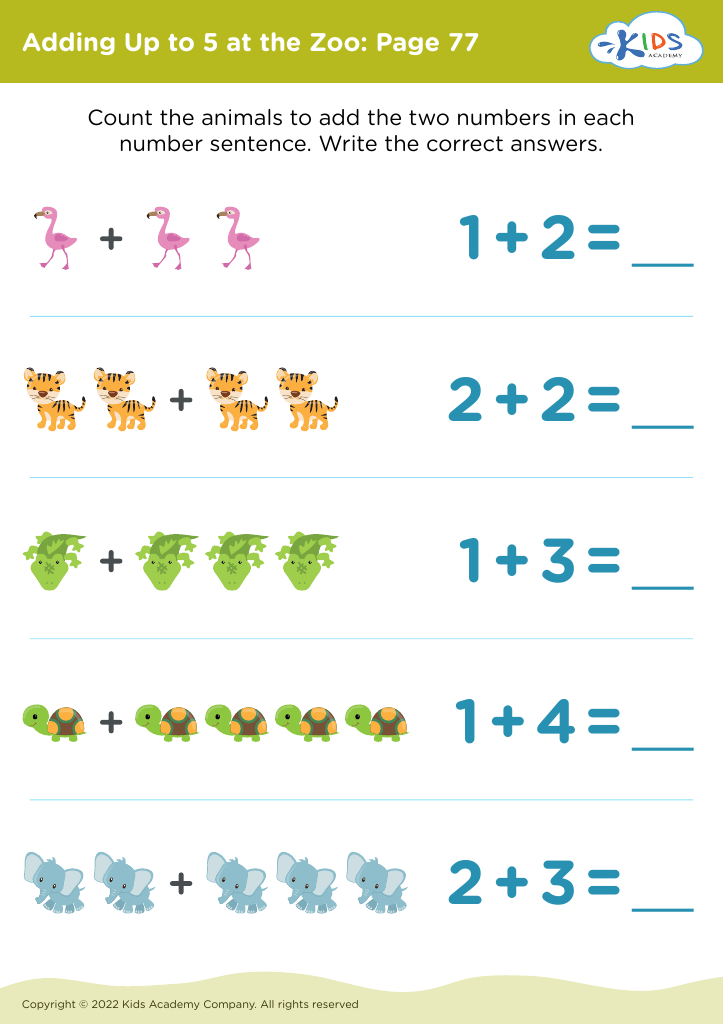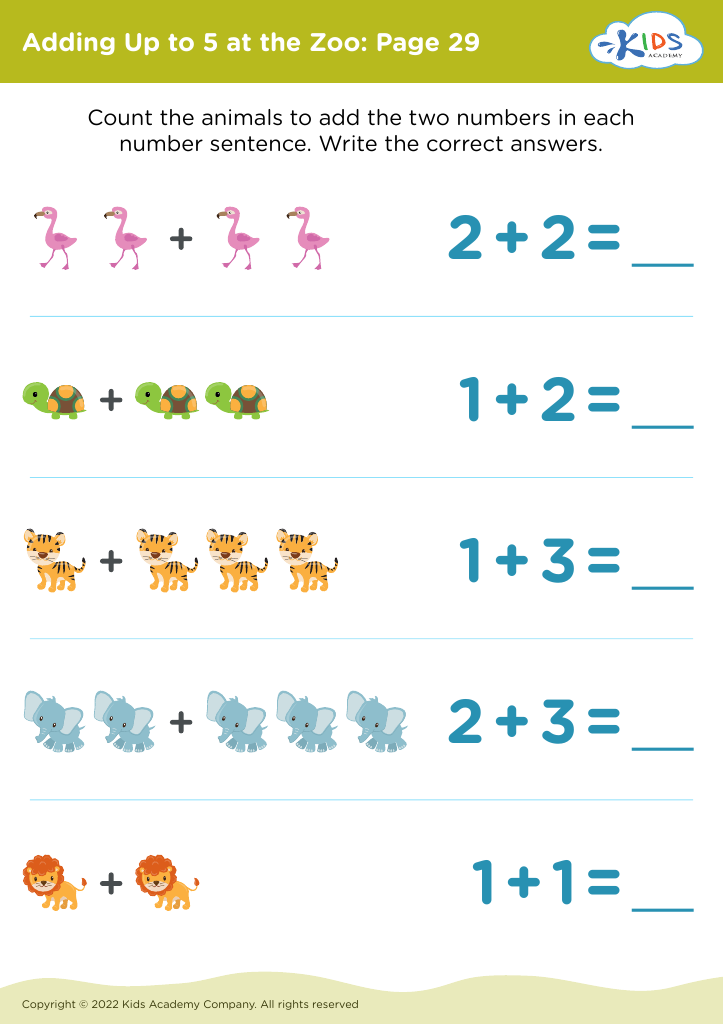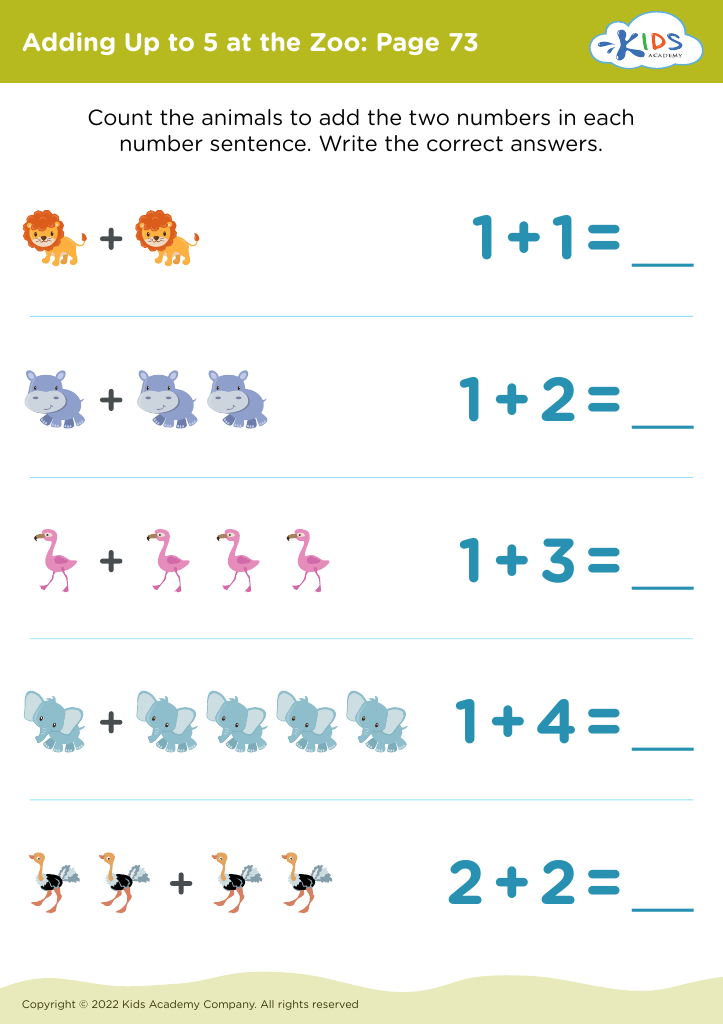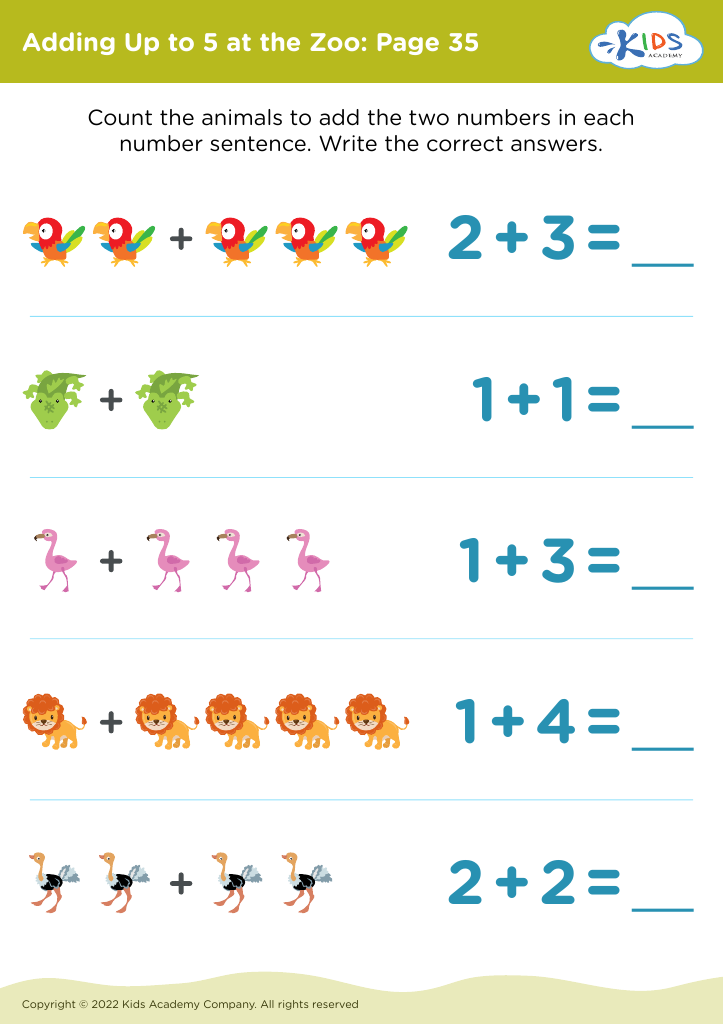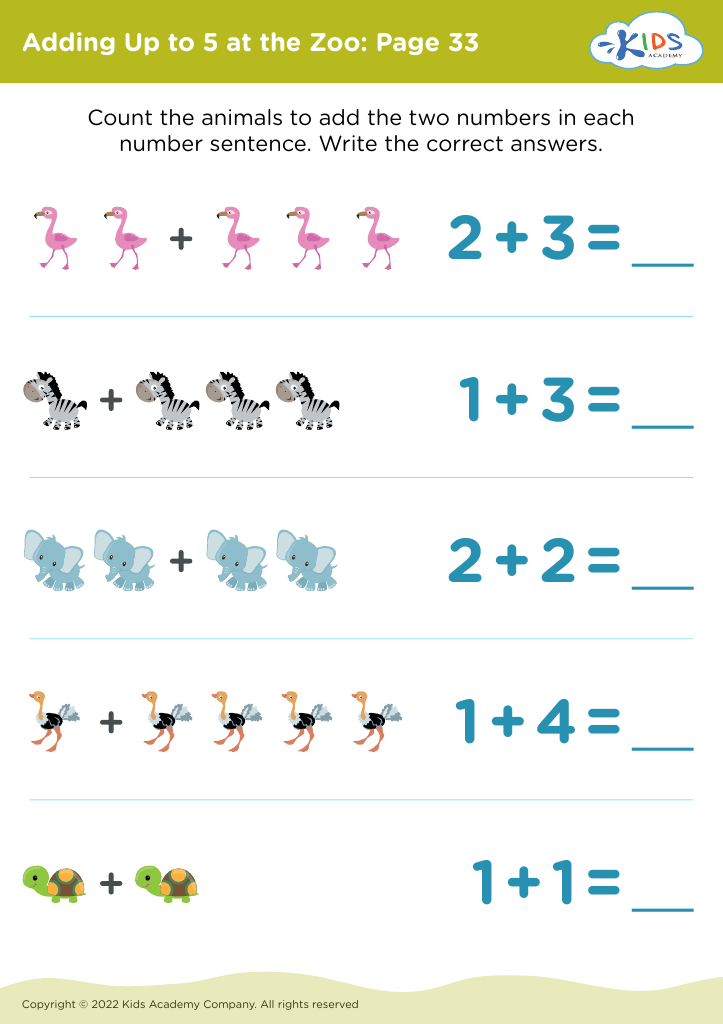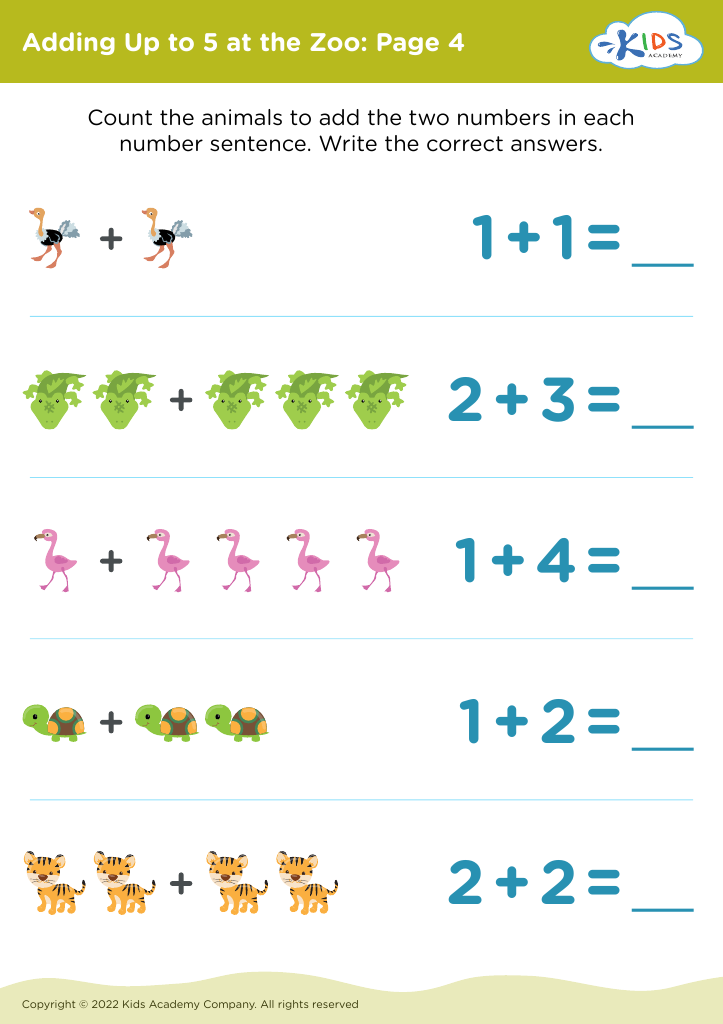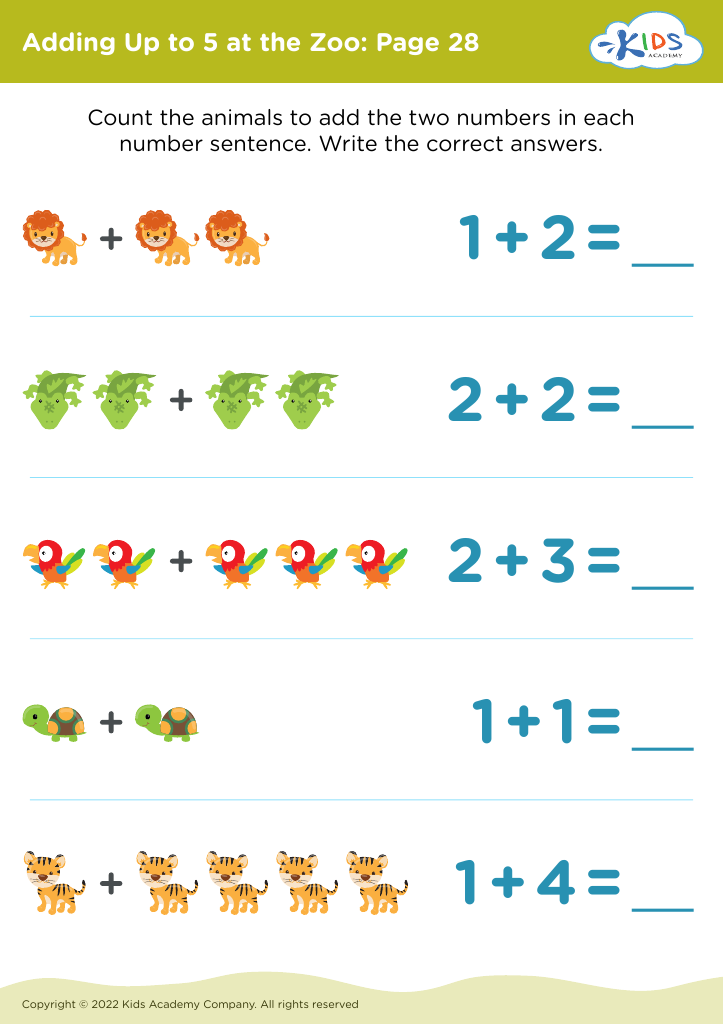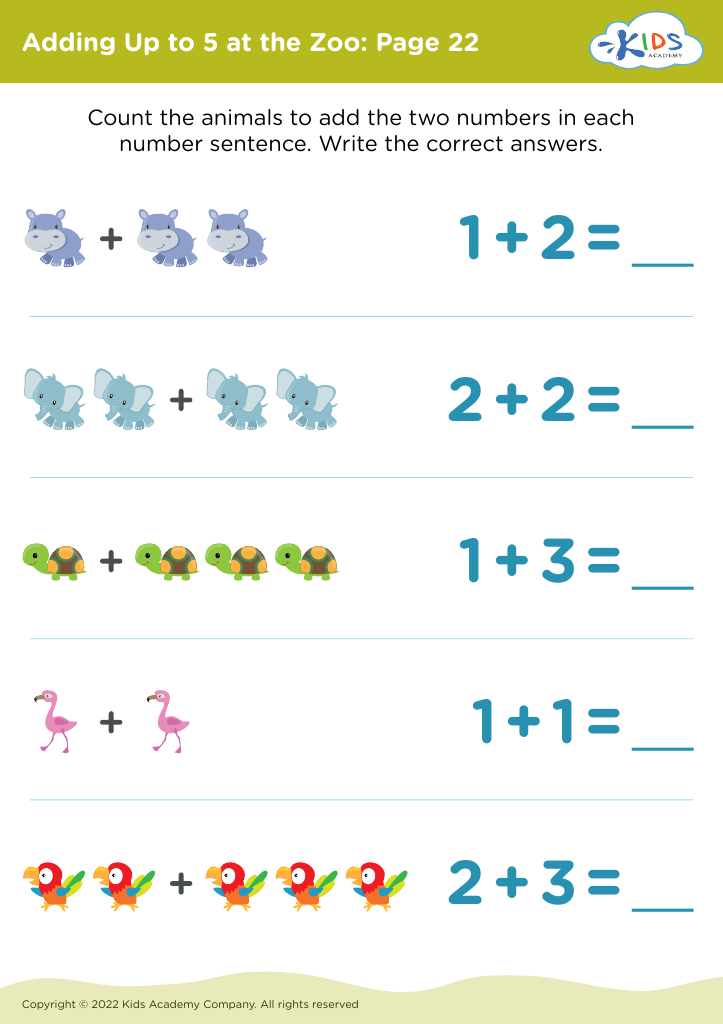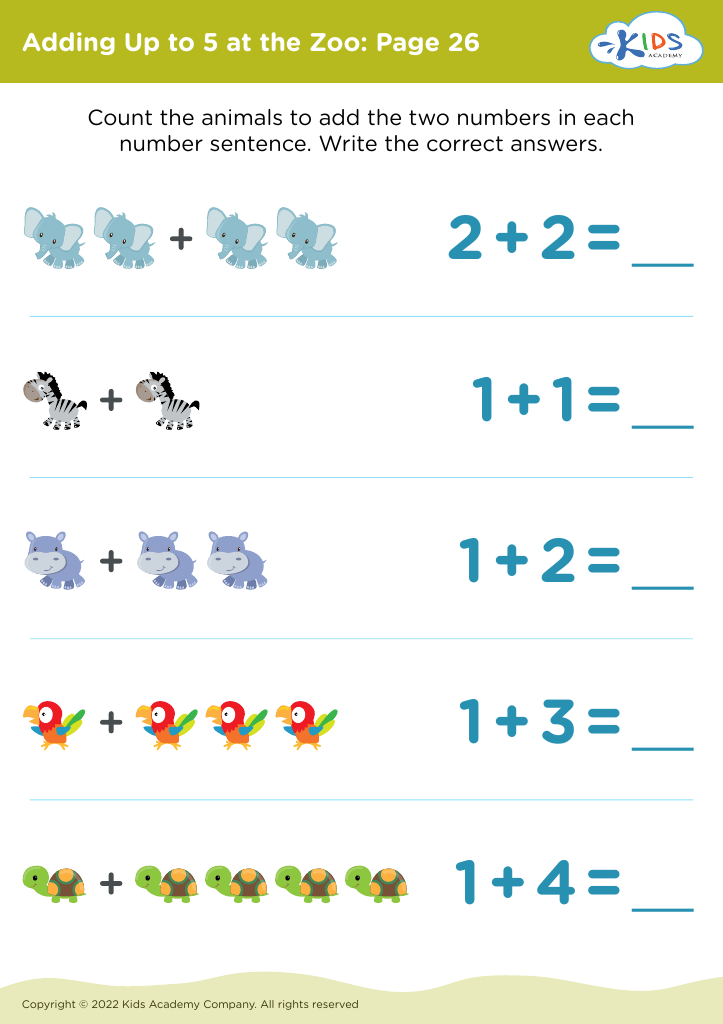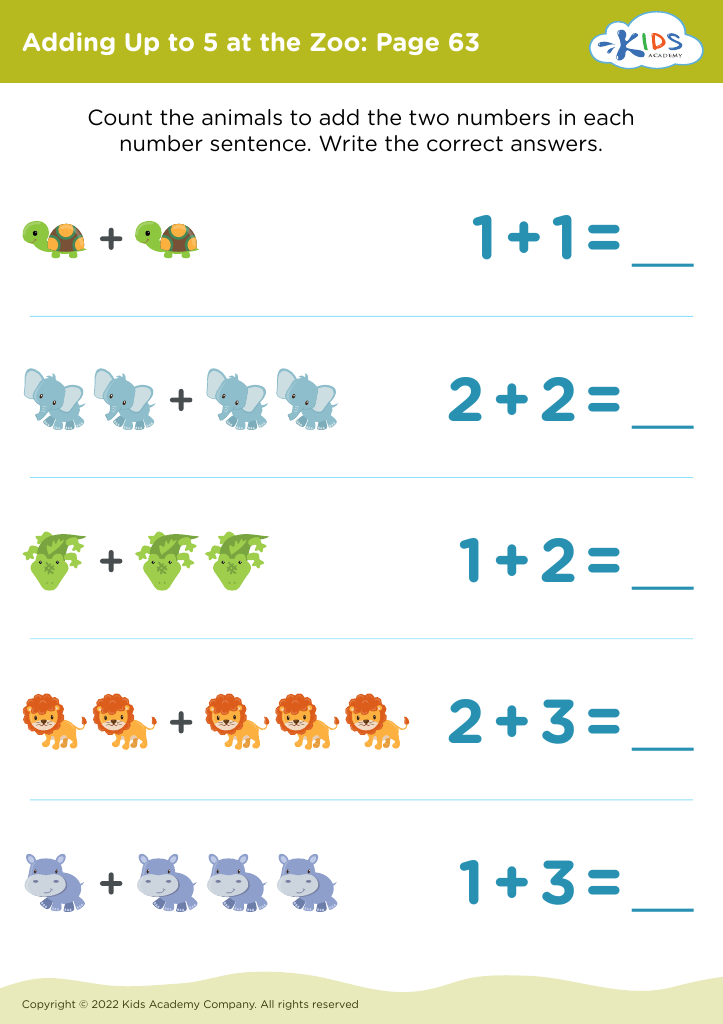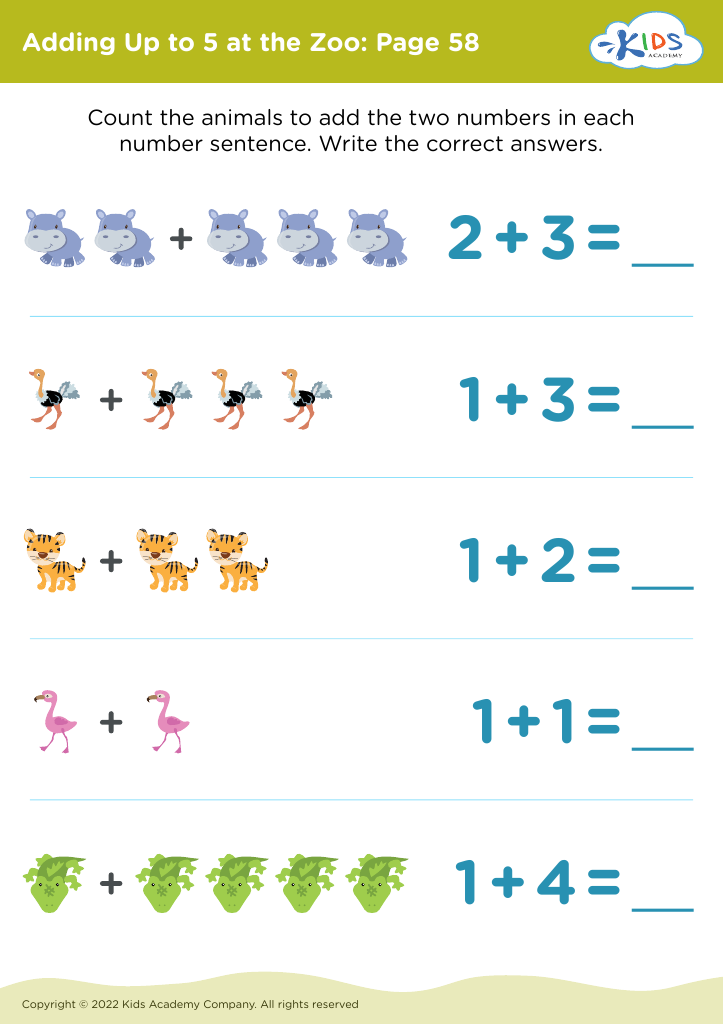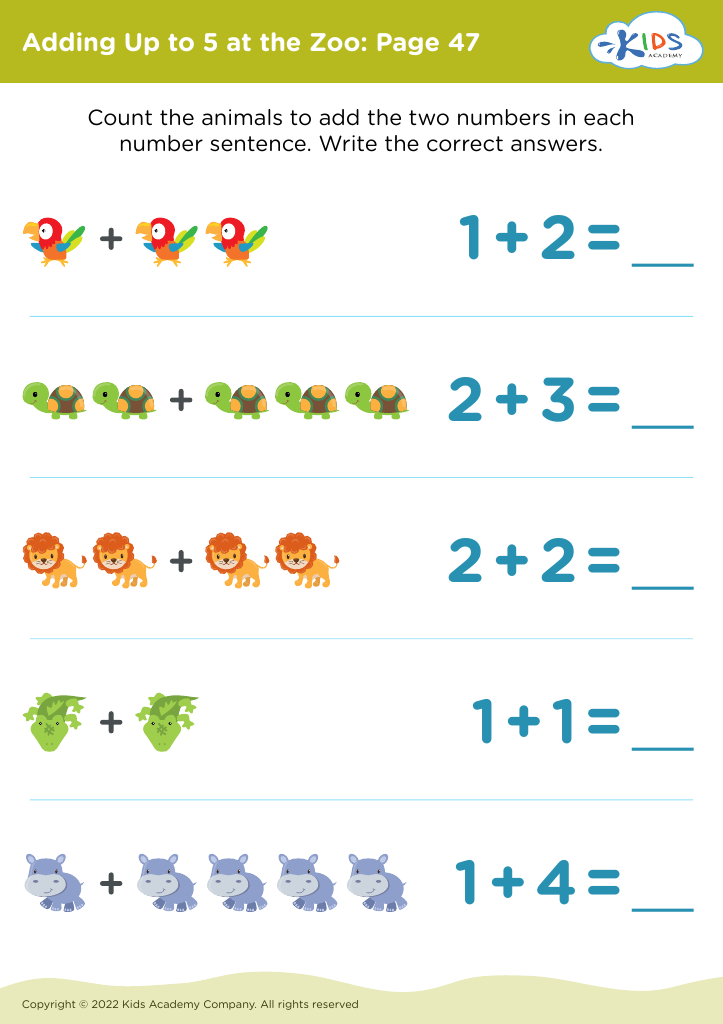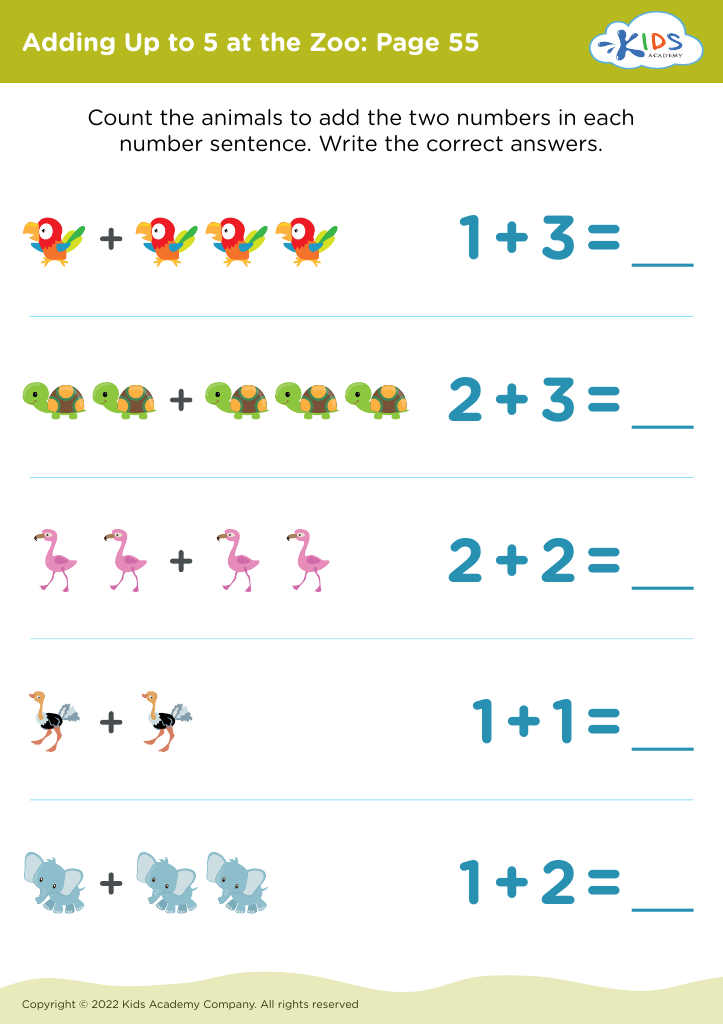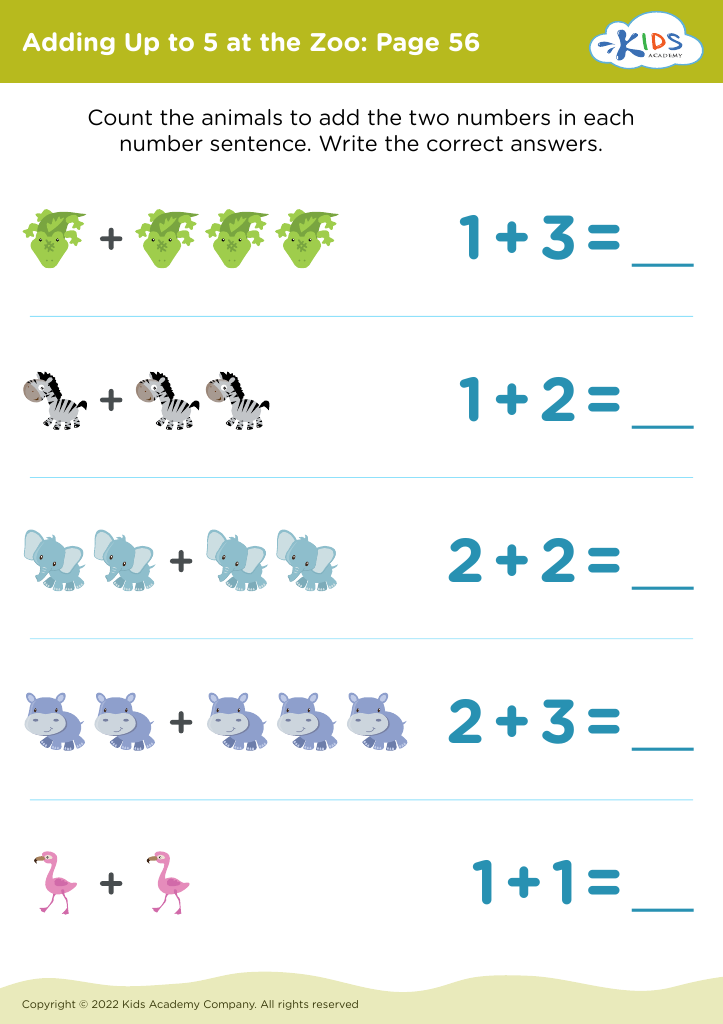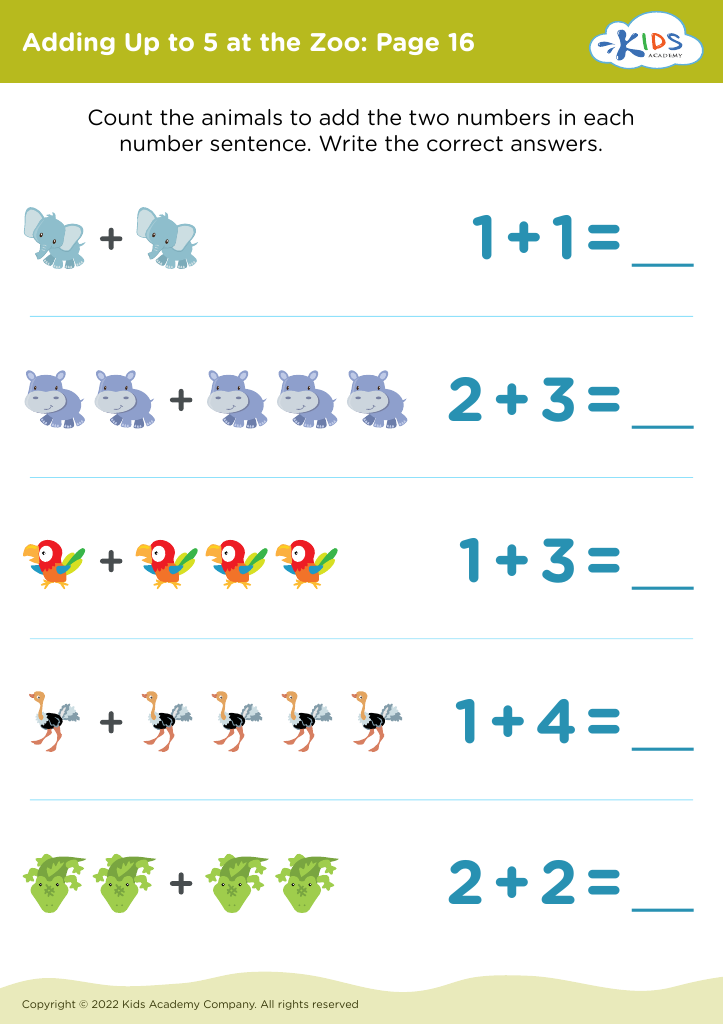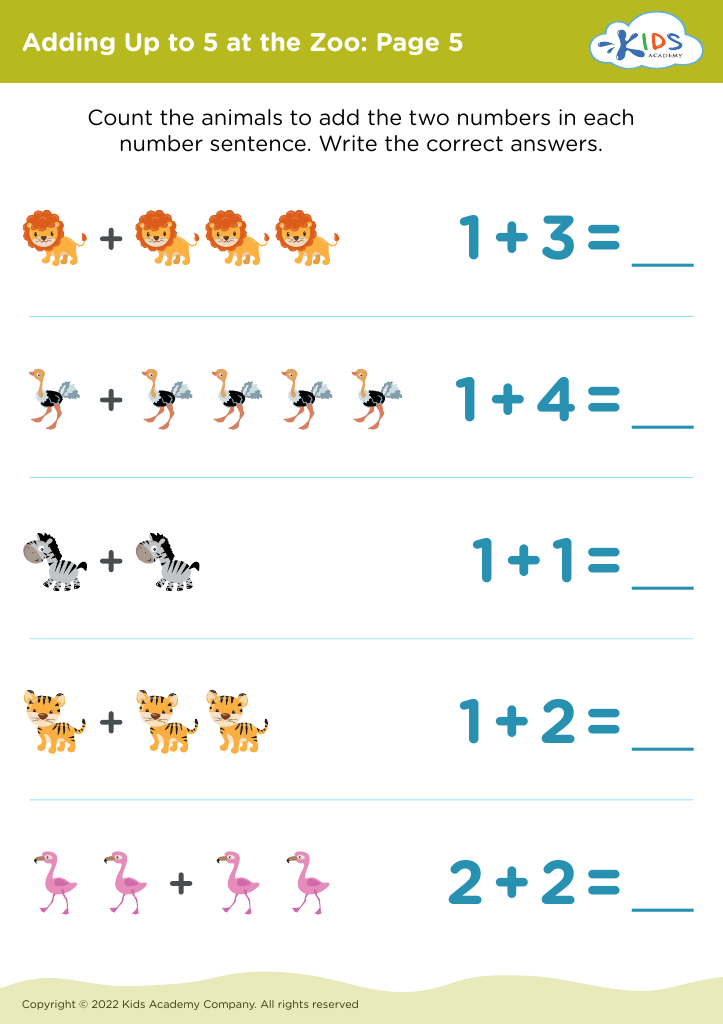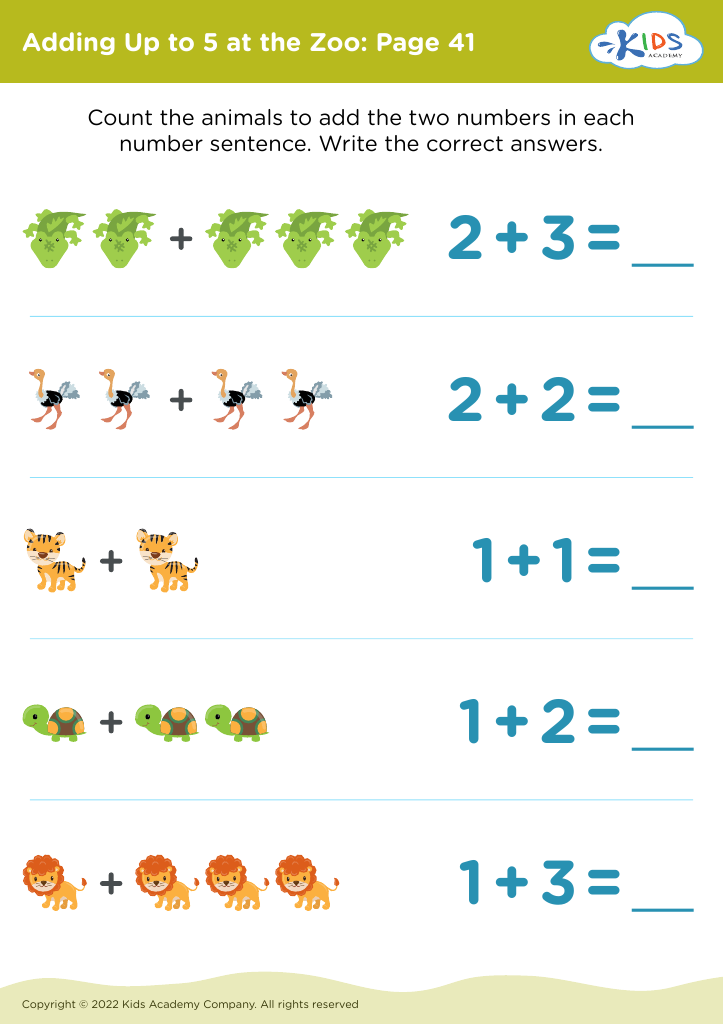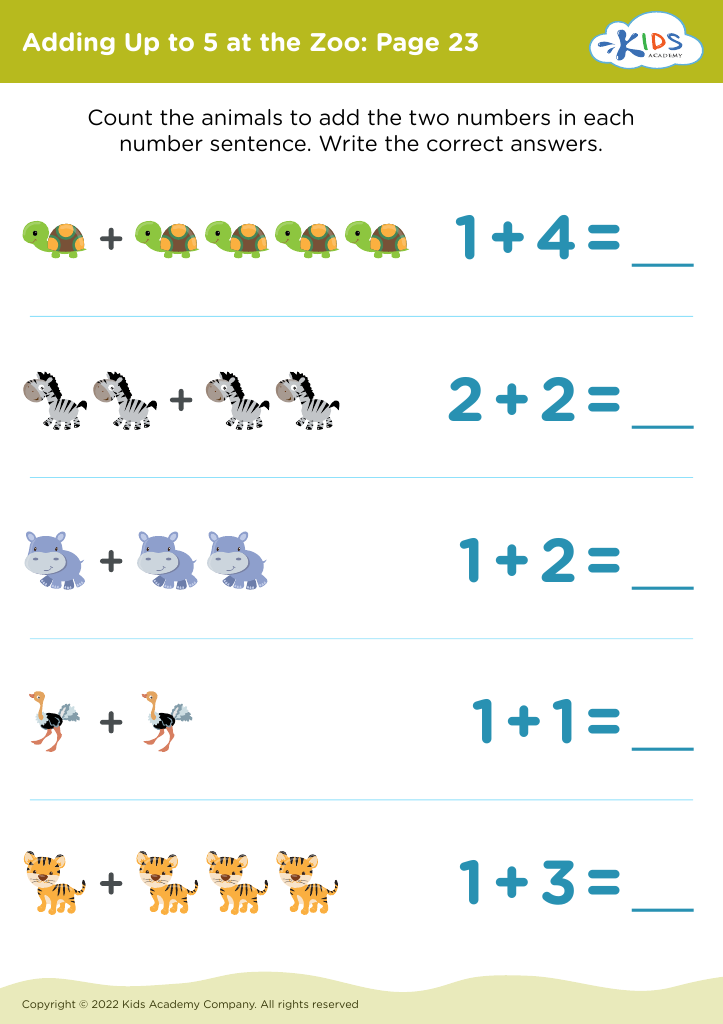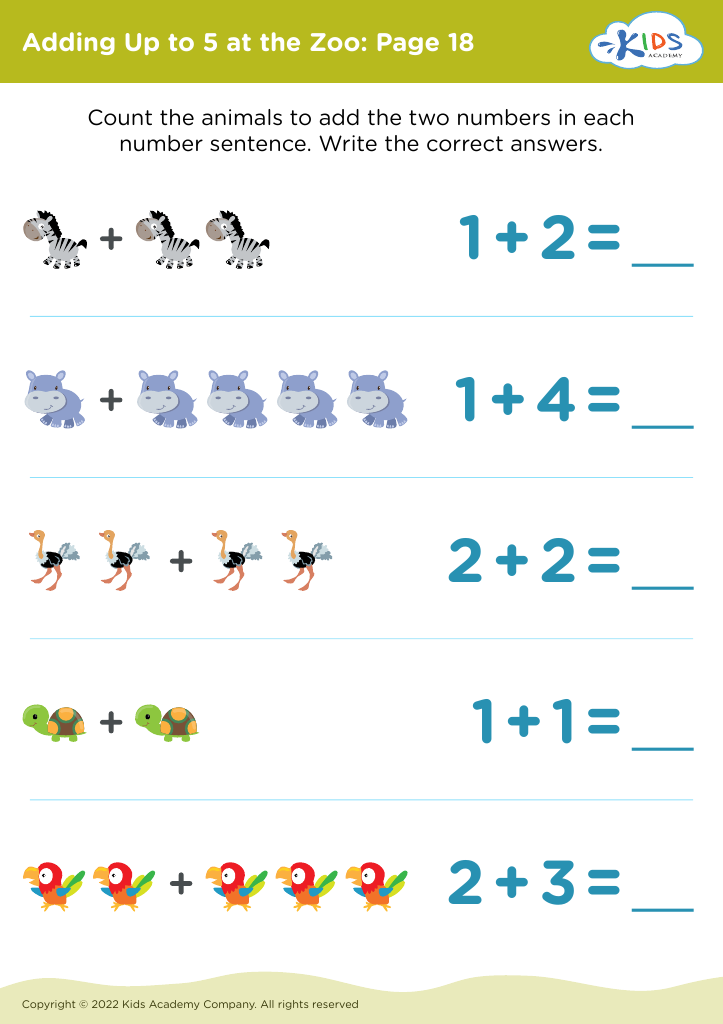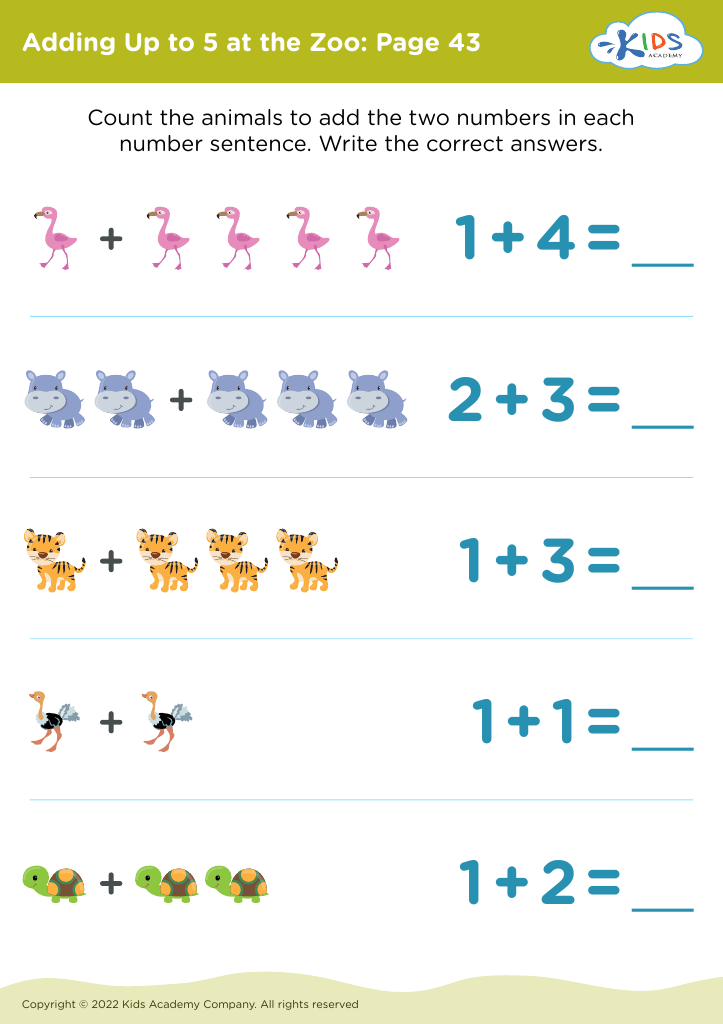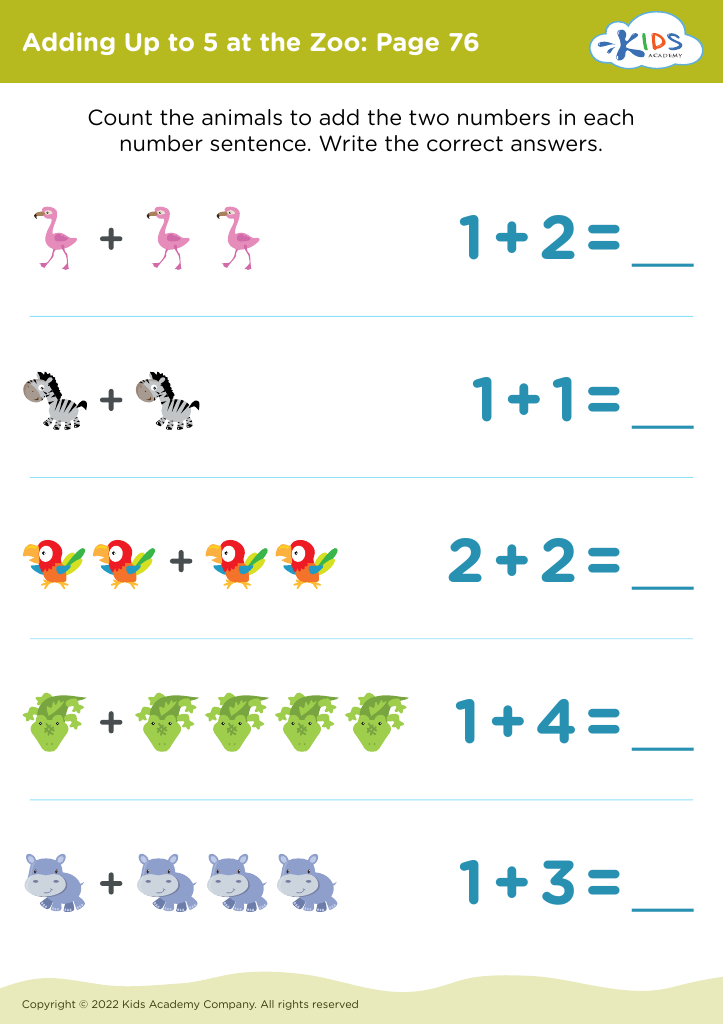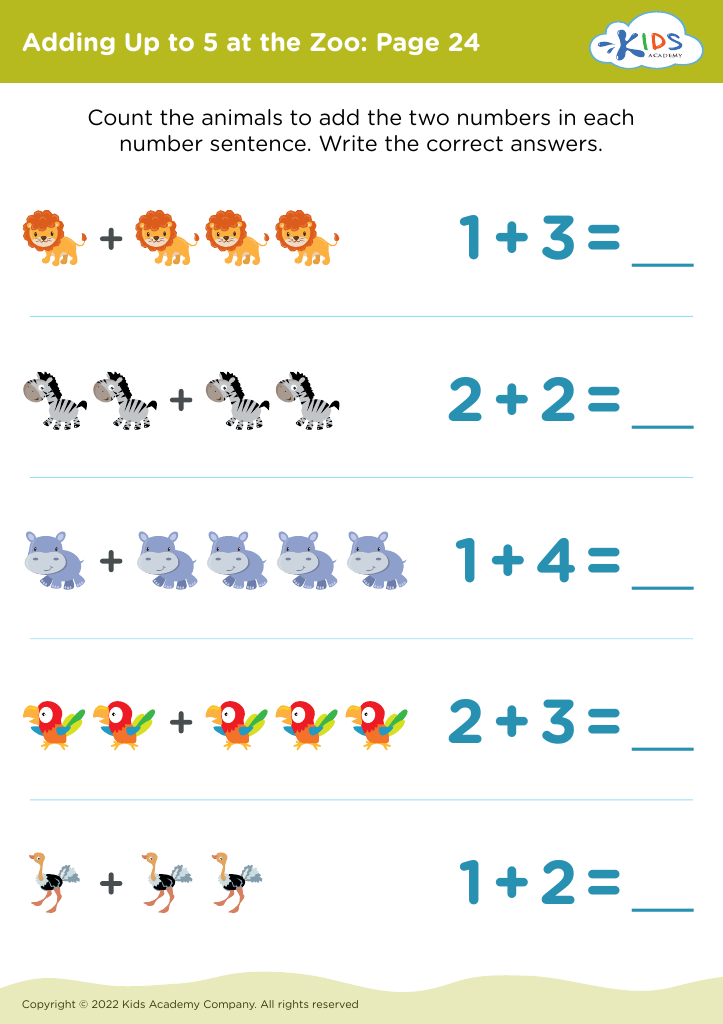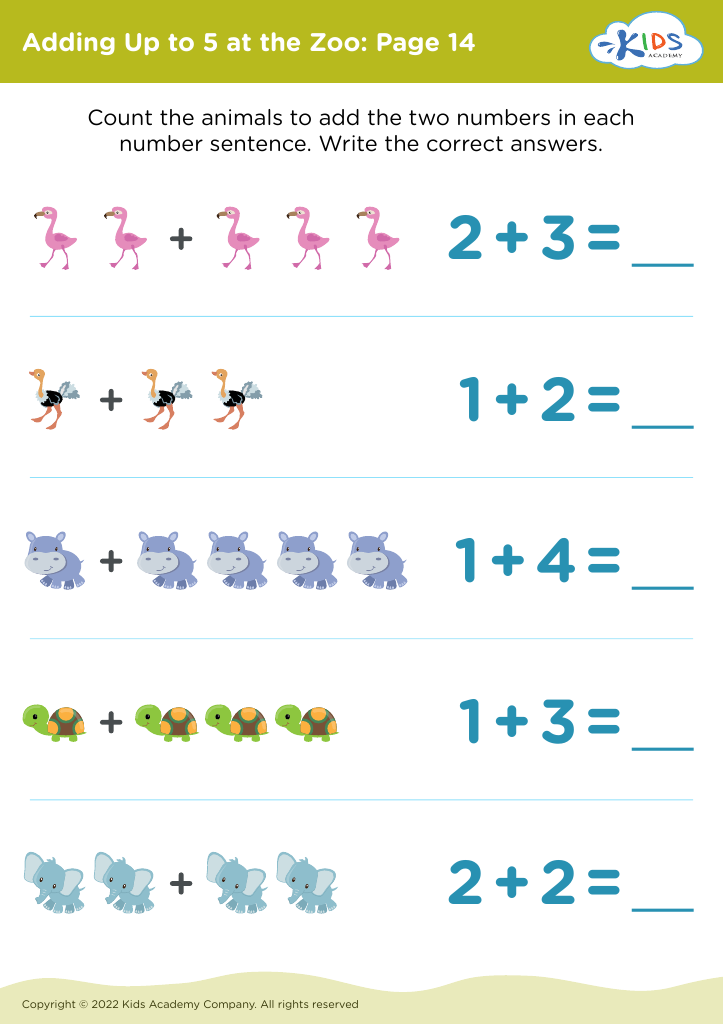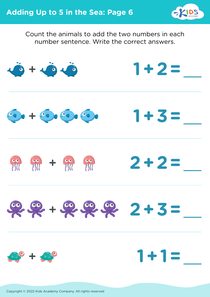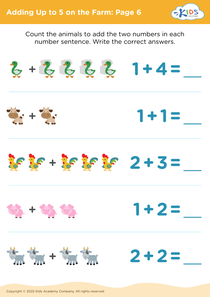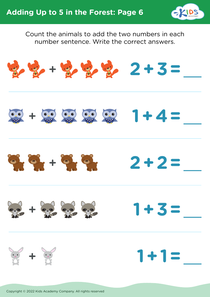Counting practice Adding at the Zoo Worksheets for Ages 4-6
41 filtered results
-
From - To
Welcome to our "Counting Practice Adding at the Zoo Worksheets," designed specifically for children ages 4-6! These engaging worksheets combine the excitement of a zoo visit with essential math skills. Young learners will practice addition and counting through fun animal-themed exercises, helping them develop number recognition and elementary math concepts. Each worksheet is crafted to maintain children's interest while promoting problem-solving skills. Perfect for classroom use or at-home learning, our resources foster a love for math in a playful, interactive way. Browse through our colorful and engaging activities to enhance your child's math journey today!
Counting practice, especially through engaging themed activities like "Adding at the Zoo," is essential for children aged 4-6. At this developmental stage, children are naturally curious and eager to explore their surroundings, making a zoo theme particularly captivating. Using a fun and relatable context helps children grasp basic math concepts while fostering a love for learning.
Firstly, counting activities promote essential cognitive skills, helping children understand numbers and their relationships. Adding animals or counting their features encourages hands-on experience, which enhances memory retention. By integrating animals into math practice, we also tap into children's interests, motivating them to learn.
Additionally, these activities support social and emotional growth. Children often work together, sharing ideas and strategies, which develops collaboration and communication skills. As they successfully solve problems, they gain confidence and resilience.
For parents and teachers, including counting activities in everyday learning encourages a positive attitude towards math, laying the groundwork for future competencies. Ultimately, "Adding at the Zoo" not only makes counting more enjoyable but also helps children form meaningful connections to concepts they will build upon throughout their educational journey. Investing time in such playful learning experiences benefits children's academic and social development alike.
